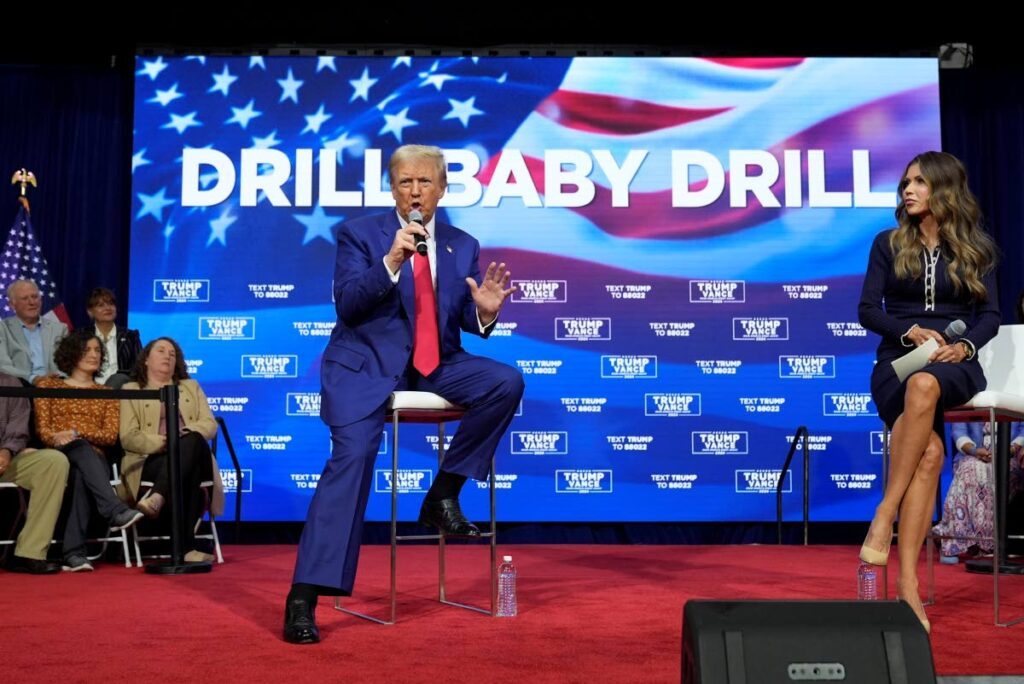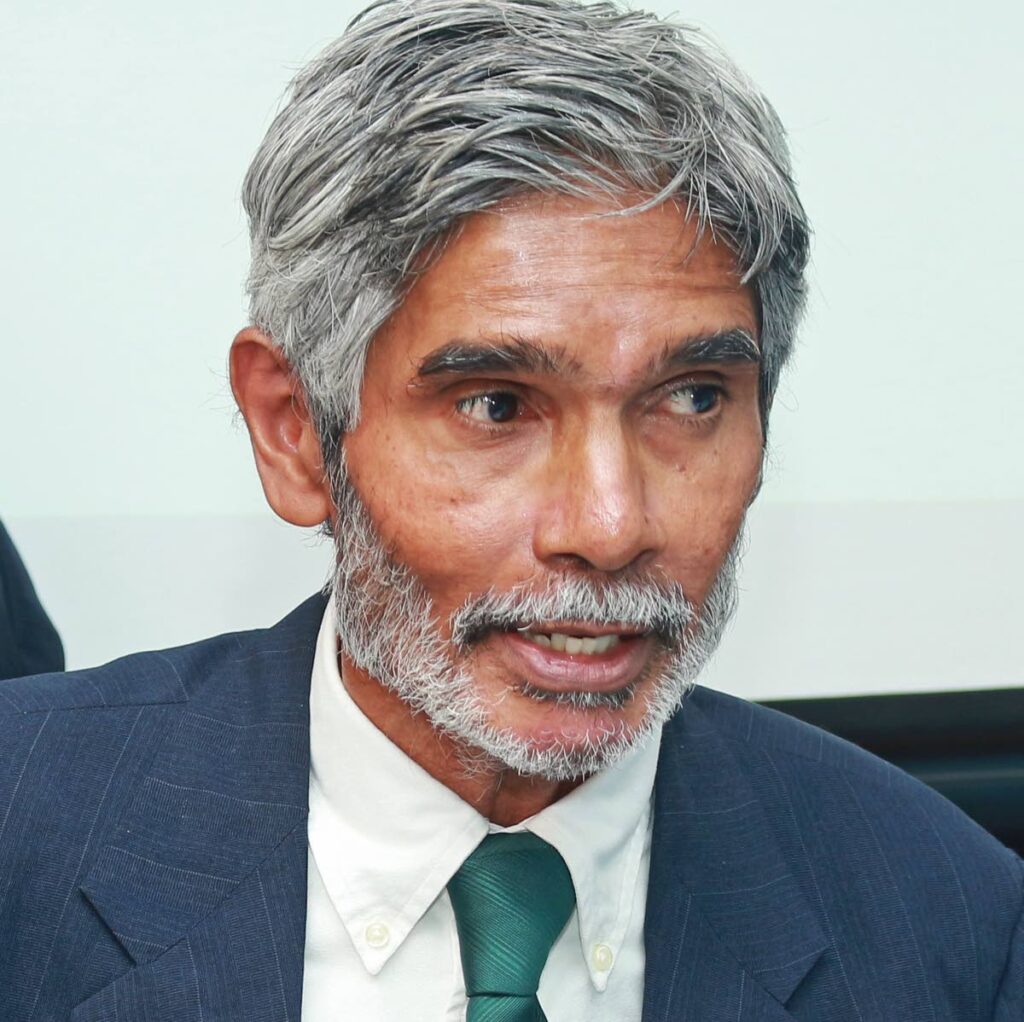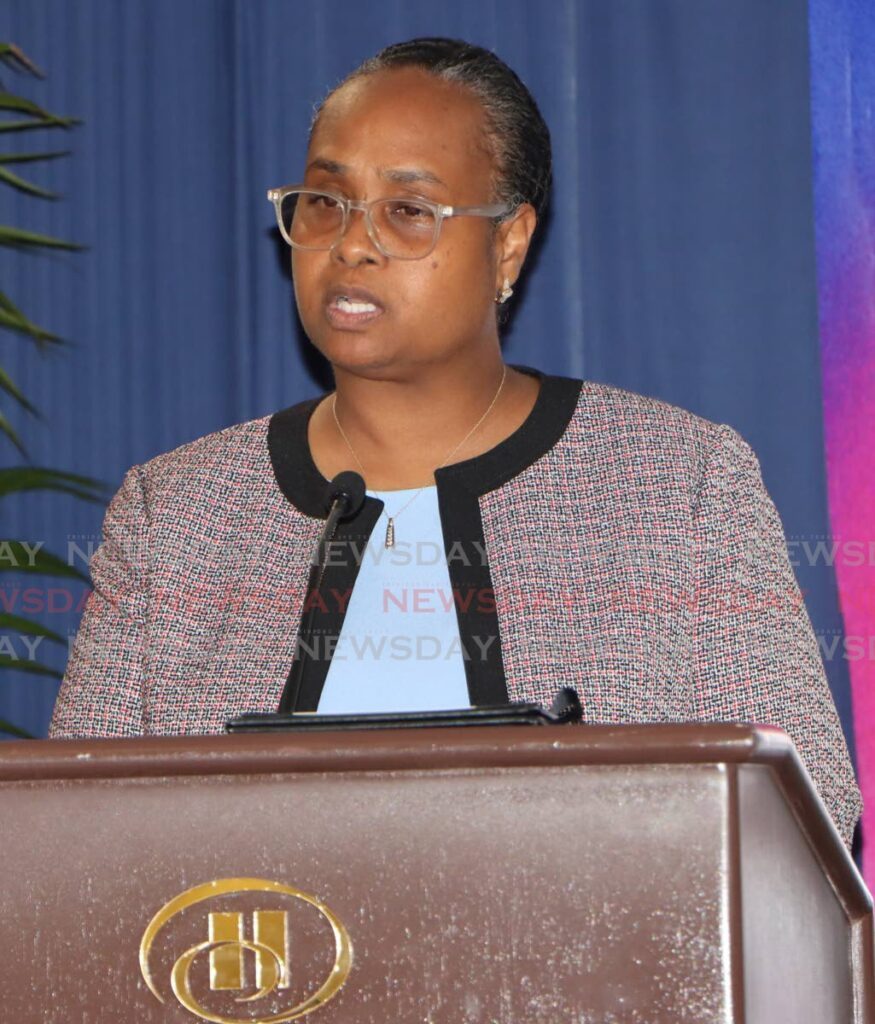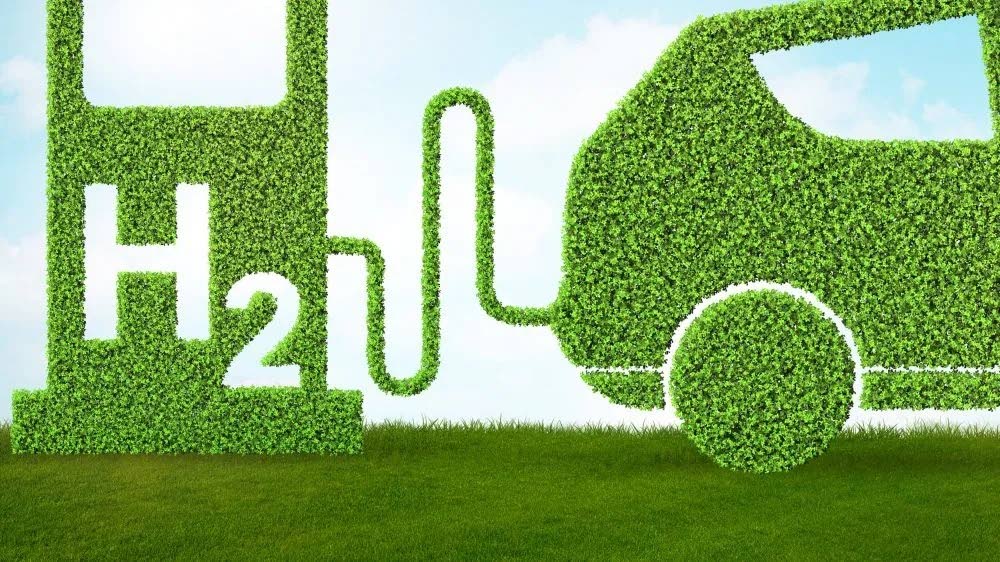Green energy blues: What Trump's climate agreement snub, drilling push means

The global energy transition drive was turned on its head on Monday, as one of its biggest contributors and advocates – the US, under newly-installed president Donald Trump – turned its back on its clean-energy policies.
The move is not new. In Trump’s last stint as president, 2017-2021, he also reversed the previous administration’s clean-energy plans.
But the news has earned mixed responses from several local environmentalists and entities, who said while it is still early days, the US president’s plans will have a regional and global effect.
Among dozens of executive orders Trump signed on January 20, one ordered that the US withdraw from the Paris climate agreement, reverse electric-vehicle (EV) mandates, ease regulations on oil and gas production, and, in declaring a national energy emergency, called for oil producers to “drill, baby, drill” in Alaska.
These policies are a complete flip from those of less than a year ago, when the Biden administration’s New Green Deal and EV mandates sought to reduce the country’s carbon footprint by close to 50 per cent.
The New Green Deal also had some benefits to the region, as it focused on not only reducing the US’s carbon footprint, but supporting other countries, especially small island developing states such as TT, in their transitions.
Last December, the Biden administration announced a US$3 billion pledge to the Green Climate Fund, the largest international fund for supporting developing countries tackling climate change.
But when Business Day went to the US government’s website State.gov, the announcement had been removed.
“State.gov has been refreshed as of January 20 (the date Trump was inaugurated). If your search does not return to the content you expected, please check 2021-2025.state.gov for the former administration’s content.”
The announcement was still on the website of the World Resources Institute, an organisation that helps countries protect, restore and stabilise the environment. It shared the announcement as news coming out of the COP28 climate conference in Dubai.
Kublalsingh: It makes no difference
Environmentalist Wayne Kublalsingh didn’t see a problem with the policies and plans of the new US president.
Asked his thoughts on the effect of Trump’s new energy policies, he said they would make no difference.

“The Paris Agreement is a weak agreement. It has been watered down, because none of the participating countries could come up with a full resolution.”
He added that it was voluntary. Countries are not reprimanded, nor do they face any legal action if they do not adhere to the agreement, for which Kublalsingh said the US was notorious.
“The US has been part of these protocols since the 70s or 80s, and they have never obeyed them.”
He said for the US, it is a good move economically, being US$36 trillion in debt, facing significant inflation challenges and with its military forces stretched thin by occupying other countries for its energy.
“Trump has said he wants to do away with these line-in-the-sand wars, these military engagements and regime-change wars, and he was very clear about that.
“All of these countries have these demands and want to decapitate the leadership, so he is saying, ‘Let us withdraw from these countries and let us ‘Drill, baby, drill,’ meaning ‘drill our own oil.’ If (the US) can do this, then they can carry down inflation.”
Kublalsingh said this would make the country wealthier in terms of oil and gas reserves, which could reduce the price of fuel at the pump, one of the major factors in inflation for the US.
As for support and funding for the region and the world if the US had continued its Biden-era energy transition plans, Kublalsingh wondered why the region was so heavily dependent on other countries in the first place.
He was particularly critical of the government, calling it a “climate criminal.”
“Our governments have consistently refused to do anything about climate change. We consistently suffer from flooding and no government has built dams at the foot of the Northern Range. It has not really put any kind of engineering infrastructure to harness water. They have not established any infrastructure to deal with these tragedies.
“They decided to build a highway (the Solomon Hochoy expansion project) across the Oropouche Lagoon, to destroy the food basket down there. They decided to close down part of the St Augustine nursery.
“Why are they asking for American money when they can’t fix their business?”
In any case, he said, “Funding will not help. We need real, concrete, economic, practical technical engineering solutions.”
Ex-EMA head: We need US help
Environmentalist and former chairman of the Environmental Management Authority Allan Bachan had a different view.
He expressed disappointment at Trump’s withdrawals.
“The most powerful economy is walking away from the climate fight at possibly the worst time. This will probably not change the trajectory of climate-proofing globally, but I am mindful that it may slow it down.”
He pointed out the importance of major countries’ contribution to reversing the world’s climate trajectory.
“We need to understand that without the US contributing to climate finances, we will fall drastically short of funding for vulnerable small island states like TT to build our resilience to tackle the impacts…Our region will be among the first in line to see the calamitous effects. This, I dare say, will deepen global climate injustices.”
He also noted the possible effects of drilling in Alaska, recalling the Exxon Valdez Oil Spill of 1989. When the Exxon Valdez oil tanker ran aground, the spill affected more than 1,300 miles of shoreline and significantly affected fish and wildlife.
“The Alaskan region is one of the most biodiverse regions on the planet. Drilling can damage the tundra ecosystem and threaten the habitats of wildlife like the endangered polar bears and birds. It can release carbon stored in Arctic soil, which can lead to volatile shifts in the already fragile global climate. Fracking (recovering oil and gas from rock with pressurised water) can pollute ground and surface water.”
Former UWI director: 'Trump's plans could have deleterious effects
Distinguished professor at the University of Alberta and former director of Institute of Internal Relations at St Augustine campus, UWI, Andy Knight said there will be several deleterious effects coming from Trump's announcements, particularly for the Caribbean which is already vulnerable to the effects of climate change.
"One of the primary concerns I can see is the immediate economic impact. The Caribbean region is heavily reliant on imported petroleum products, which makes them vulnerable to global energy-price volatility.
"A withdrawal from clean energy initiatives will lead to continued dependence on fossil fuels, resulting in high electricity costs that could impede economic development and harm the competitiveness of tourism and other industries."
He said energy security was another concern given that the Caribbean, except for TT and Guyana, has limited energy resources. He said the US withdrawal from these initiatives would lead to continued reliance on imported fuel.
"My sense is that US companies will be heavily involved in the oil resource extraction in both TT and Guyana. These companies will be emboldened by Trump’s concentration of these extractive industries which will lead to a diminishing of any effort on the part of Trinidad and Guyana to consider alternative forms of energy."
He added that the environmental impacts would also be significant given the Caribbean's fragile ecosystems such as coral reefs and mangroves which are vulnerable to climate change. The region's continued reliance on fossil fuels will only serve to make the impacts to these ecosystems worse.

He said the move would also have an impact on regional cooperation and development which has been progressing steadily over the past few years.
"A withdrawal from these efforts could undermine this progress and create new challenges for regional cooperation and development.
"One hopes that with Mia Mottley leading Caricom, there can be some push back against what the new Trump administration is attempting to do – which will only result in disastrous results for Caribbean states and the entire globe."
Other countries, regions, must step up
Denise Ferguson, executive manager of entrepreneurship, development and innovation at Cariri, said it was very possible that, with Trump’s withdrawing from green energy initiatives, a huge chunk of funding could go too.
But she said this brings an opportunity.
“The US is a very big player. This means that the rest of the world – Europe, Asia, Africa, South and Central America and the Caribbean – need to be able to say how we are able to step in with the use of new technology, creating new initiatives that are quicker, cheaper and can be disseminated faster.

“I think we are in a perfect place to bounce back. “Are we going to hurt in the short term? Possibly, but in the long term, I don’t think so.”
Unipet CEO Dexter Riley said it is still early days since Trump’s executive orders, and the world will still have to wait to see how markets and other jurisdictions will react.
He also said despite Trump’s plans, the global fight against climate change will continue.
“He declared the US position, but there is a global commitment, including TT’s, to the Paris Accord and a number of agreements.
“What I anticipate is that there will still be a moving forward.
“What we may see is that the US policies will affect the US in particular. This may even promote an acceleration in efforts against climate change in our region and other parts of the world.
“It could also put a drag, but it is still too early to call.”
He said there may also still be players in the US market that will continue to support transition, and other countries are contributing in several ways.
“There is a lot of innovation and technology coming out of China and in Europe, and some in the US. Even the investment in AI could be leveraged.”
In a January 21 daily UN press briefing by the office of the Secretary General, deputy spokesman Farhan Haq reiterated UN comments on Trump’s decisions, calling for countries and businesses to take advantage of opportunities to invest in renewables, which, Haq said, would power the rest of the 21st century.
“The Paris Agreement was adopted by all the world’s nations in 2015 because they recognise the immense harm that climate change is already causing and the enormous opportunity that climate action presents.
“The last ten years have been the hottest in recorded history. We have to look no further than Los Angeles to see this human, ecological and economic disaster play out.” That city has been devastated by massive wildfires in the past few weeks, exacerbated by a severe drought.
“The collective efforts under the Paris Agreement have made a difference, but we need to go much further and faster together.”
TT’s progress on green path
Minister of Energy Stuart Young, at the TT Energy Chamber’s Energy Conference last year, said sustainability in the context of energy transition is, as for many other countries, one of the focuses of TT.
“Nations are forging their own routes, tailoring their plans to match their own needs and available resources.”
He pointed out that the region relies on petroleum products for 87 per cent of its primary energy-consumption needs, resulting in spending up to 15 per cent of annual GDP on fuel imports.

But Caricom states have set a regional target of a 47 per cent renewable-energy contribution to total electricity generation by 2027. To do this, they must add four gigawatts of renewable energy to the energy grid, at a cost of US$9 billion.
Locally, TT’s focus includes increasing natural gas production, exploring the feasibility of hydrogen production for energy, and several projects such as Project Lara, the solar farm at Brechin Castle, as part of its transition plans.
“TT is poised to become a leader in the transformative technology known as green hydrogen as part of its energy transition,” he said.
At COP26 in 2021, the Prime Minister acknowledged TT’s and the region’s responsibility to transition to clean energy.
“We have embarked on ambitious plans to reduce emissions and build climate resilience – but we will need help,” he said. “TT is a small island developing state already experiencing the effects of climate change. Loss and damage are already clear in the aggressive erosion of our coastline and the bleaching of our coral reefs. Tackling loss and damage must remain a critical and core issue of any global climate-action framework.
“We are increasingly concerned about our ability to address this issue, given the well-known difficulty in accessing financing for such projects. We need funds like the Green Climate Fund to establish specific streams for loss and damage finance to ensure that this is prioritised in the same way as mitigation and adaptation.
“Further, there must be an equitable balance between public finance for mitigation and adaptation.”

Comments
"Green energy blues: What Trump’s climate agreement snub, drilling push means"